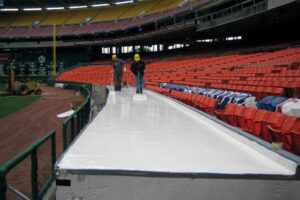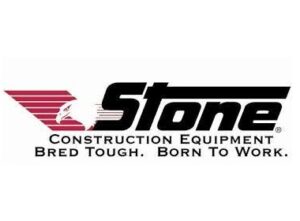
Peace of mind seems to be a rare commodity these days. So, if you could become involved in a program that helps offer that to you and your clients— and possibly helps grow your business, as well— wouldn’t you leap at the opportunity?
While many suppliers offer one-year warranties on their products, it’s not surprising that several are willing to go the extra mile and supply coverage that can last five, even 10 years or more.
The catch? The products must be installed by a contractor certified by the company, and that typically means more than simply taking a manufacturer’s training course.
Good for everyone
That’s not to say that every job needs a warranty or every client wants one. Paul Koury, president of San Diego-based Westcoat, says it depends a great deal on the client and the job.
“If you’re doing a garage floor, a warranty might be for one year,” he says. “If you’re waterproofing a roof deck for an apartment complex, unless you offer a 10-year warranty most clients won’t want you to do the work.”
He adds that some warranties not only cover material components, but also warrant the installation itself.
A product warranty can certainly be a selling point, says Scott Metzger, president of Metzger/McGuire in Concord, New Hampshire. He says it’s no different than comparing the merits of two contractors who are bidding on painting the exterior of your house.
“At the end of the day, it’s definitely an important way to express you have confidence in what you’re selling,” says Metzger.
And, it can benefit both large and small businesses because it helps set their company apart from others, regardless of the market.
“The smaller contractor is having to compete more with more contractors because there are a whole lot more of them in the market,” says Brad Burns, technical director for the HTC-America division of Olathe, Kansas-based Husqvarna Construction Products North America. “The larger contractor also has stiffer competition because he’s doing larger projects that demand tighter budgets and tighter timeframes, so there’s less room for mistakes.”
Husqvarna is so concerned about the contractors using its machines that it offers classes simply to make sure they’re getting the most out of their equipment, particularly the diamond tooling. Its only warranty is to the owner of that equipment.
However, for companies selling component systems, that concern spills over into being focused on making sure their installers are the best they can be, and the emphasis is on an entire line of products.
Annika Oeing, marketing communications manager for Ardex Americas based in Aliquippa, Pennsylvania, says its program is all about peace of mind.
“We warrant a system, rather than individual products,” she stresses. “That way it serves as a complete installation solution in addition to giving an installer confidence on the job site.”

Training and experience
Company training is an important aspect of these warranties, but it’s seldom the end-all and be-all. Both Koury and Metzger agree that training is important, but their formal training programs are only part of the story.
“Westcoat’s program isn’t like a lot of others,” says Koury. “Some companies have a program where they take a two-hour course and walk out with a certificate. Sure, we want people to come to our training courses, but it’s more important to show their expertise and qualifications before they’re certified.”
That means a contractor can’t install a job and then at the last minute call to get an extended warranty. If the contractor doesn’t have the qualifications, the company might write a limited warranty on the components and materials, but it won’t write a job-specific warranty.
Metzger says in his company’s case, the classes it offers certainly help, but they’re only a first step in what can be a more comprehensive process.
“We go out and audit the work they did in the past, whether it was done with our materials or not,” Metzger says. “We look at the equipment they own, how they did the job, the overall professionalism of the business and the reputation they have. We also ask for references.”
For the contractor willing to go the extra mile and get that certification, the result is likely worth the effort.
“Things typically start with the specifier who wants to specify a material that has a certain warranty attached to it,” says Metzger. “It might be the building owner’s request, or it might be the contractor who reaches out and says he’s doing this particular job. It’s not necessarily the case that we have to have it installed by an approved applicator, but it’s our preference.”
Westcoat’s Koury echoes that.
“When we get our products specified on a project, the general contractor will bid the job and he’ll call us and ask for qualified applicators in the area,” he says. “We normally write the specifications and the specifications say, ‘Install Westcoat waterproof deck system by a Westcoat qualified contractor-applicator.’”
While it’s obviously nice to get that referral, that relationship can do more for a contractor than just that. Both Metzger and Koury say their companies are happy to send out a technician to meet with the contractor-applicator if there’s any concern about the job.
Koury says that can be particularly important when doing a restoration job.
“There are sometimes pre-existing conditions on restoration that usually aren’t a problem on new construction,” he says. “But, we’re happy to give suggestions. They can then use their knowledge and take that to the architect or engineer who’s paid to be the authority on behalf of the owner.”
And, in some cases where cost might become a factor in correcting a pre-existing condition, Westcoat isn’t willing to write a full warranty as a result.
Even with new construction, Metzger says his company sometimes sees problems, particularly with cure times.
“There are certain recommendations-of-condition that need to be in place at the time of installation,” Metzger says. “I’d say 80 percent of the time those conditions aren’t in place.”
Security blanket
Still, the biggest advantage with these extended manufacturer’s warranties is that someone has your back if there’s a problem.
Metzger notes that his company likes to be involved in every step of a project, going so far as to make annual visits to check on the condition of its materials and offer recommendations for its maintenance. And, if something does happen, he says it may take only a day and a little research to determine where the problem lies.
With a warranty, the manufacturer is naturally going to be involved in the process, and there is documentation. As Ardex’s Oeing notes, the installing contractor must work in that company’s system, use the products as stated in the warranty terms, and follow industry standards and installation methods.
“In the case of a failure, these requirements will be reviewed by analyzing a core of the installed materials to determine the cause of the failure,” Oeing says.
Westcoat’s Koury says his experience is that often, the building owner, the general contractor and the installing contractor can get their difficulties worked out without calling in the materials manufacturer.
“Probably nine times out of 10, the complaint has to do with the workmanship,” he says. “Most of the mistakes happen because of the substrate selected, the tie-ins between one trade and another, and the way the material was put down and assembled.”
However, if there is a defect in the material, Westcoat will send a technician. And, if it’s not, the company will still send someone to help get the issues sorted out.
The bottom line: most manufacturers will warranty their products for a year. However, if a client needs a longer warranty and the main requirement is that you send in the name of the project and get one, it may not be a good sign. It’s important to find companies that take the certification and warranty process seriously.
“A warranty is only as good as the company that backs it,” Metzger concludes. “We work with a lot of corporate clients who specify our materials exclusively and ask us to refer contractors to them. Their work reflects on both of us, but ultimately, it reflects on us. Our reputation is on the line.”
www.ardexamericas.com
www.husqvarnacp.com
www.metzgermcguire.com
www.westcoat.com















